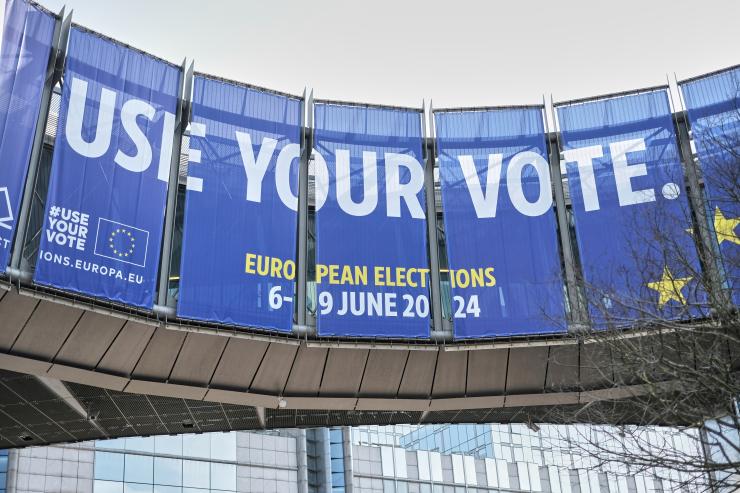The European elections.

Upcoming European elections: challenges and prospects for the European Commission. Analysis of the political landscape and industrial strategies in view of the new parliamentary cycle.
Elections for the renewal of the European Parliament will be held on 8 and 9 June, followed by a new European Commission. Outgoing President Ursula Von der Leyen is the official candidate of the relative majority party, the European People’s Party (EPP).
Almost all the other groups have also already expressed preferences, but it is worth underlining that these candidacies are expressed in the context of the “head candidate system” (also known as Spitzenkandidaten, in German) introduced in 2014 to make the election of the President of the European Commission more transparent.
However, these indications are not binding, and an alternative name may emerge, as happened after the 2019 elections when Ursula von der Leyen was chosen by the governments of the 27 and then confirmed by the European Parliament despite her not being a leading candidate.
According to the most recent projections, the composition of the Parliament will be significantly renewed compared to the closing cycle. In fact, right-wing or centre-right parties are expected to gain support and seats, while centre-left and green parties that are accredited could also suffer significant losses.
In the event of a “turn to the right” of the EU, it could potentially pave the way for an exclusively centre-right coalition. However, this is a very remote hypothesis: in the past, coalitions have always hinged on the “grand coalition” agreement between the EPP and the European Socialist Party (PES), to which, in the last decade, the centrist group of ALDE / Renew Europe, aggregated itself.
Whatever the electoral outcome, the new Commission and the new Parliament will have to face increasingly global challenges. Over the last five years, in fact, the EU has witnessed a return to industrial policy to free itself as much as possible from dependence on politically sensitive individual suppliers (Russia and China first and foremost) for the import of critical goods (for the double green and digital transition).
Brussels has thus proposed several packages of measures in a short time: the European Chips Act on semiconductors, the Net Zero Industry Act on strategic green technologies, the Critical Raw Materials Act on critical raw materials and the European Economic Security Strategy.
The underlying principle is the desire to maintain commercial ties with Beijing, while reducing dependence on the import of technologies with strong military or strategic implications, such as advanced semiconductors, quantum computing and artificial intelligence.
However, these intentions clash with the financial capacity available for the different measures. For example, if we really want to achieve the objective of the Chips Act, i.e. to increase Europe’s share of global semiconductor production from 10% to 20% by 2030, it is estimated that the EU would need to invest over 260 billion dollars by the end of the decade: almost six times the amount currently announced by Brussels.
Added to the resources necessary to achieve diversification in critical sectors are the additional defence expenditure hypothesized as a consequence of the Russian invasion of Ukraine and Trump’s doubts about NATO (and, more generally, the role of the United States in Europe). However, these increased expenses will have to take into account the new Stability Pact approved in April 2024, which for many countries with a high debt will limit the space for new investments.
In light of this context, the President of the European Commission Ursula von der Leyen has commissioned the former Italian Prime Ministers Mario Draghi and Enrico Letta to draw up two reports, respectively on the Future of European Competitiveness and on the Future of the Single Market, which aim to indicate the political agenda
of the next Commission.
The focus of these two documents is on the exhortation to abandon a too-isolated European position and to think of competitiveness not as an internal issue (i.e. competition between member states), but as an economic challenge with global players such as the United States and China – despite the differences between a democracy and an autocracy – which are carrying out massive industrialisation campaigns that put the EU’s economic interests at risk.
Letta, for his part, mentioned the need for European rules on M&A operations, which allow for the creation of true European champions capable of competing in the highly competitive global context just described. (ISPI) – (Photo: Shutterstock/PP Photos)



